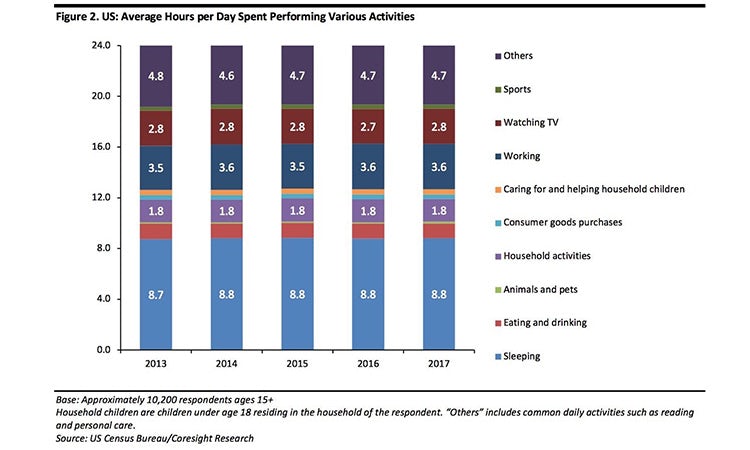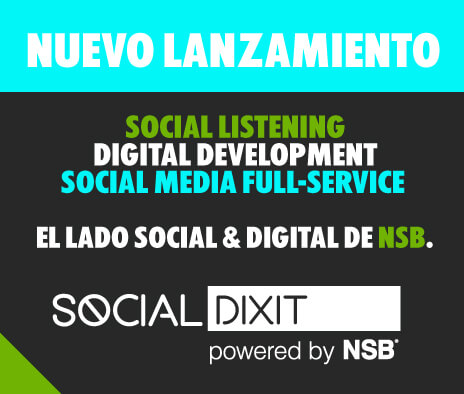Marketers would be far better off focusing on what definitely won’t change in 2019 and making a list of all the things they could do better than being distracted by hollow predictions.
As we head into the holidays marketers around the world are about to take a well-earned break. There is just time for one more festive tradition. Somewhere between Christmas and the New Year we all get a deluge of predictions, prophetic articles and PowerPoint trend decks. More and more marketers, it seems, don the VR headset of futurology and take time to predict what will change in 2019.
Marketing is a fascinating discipline in that most people who practice it have no idea about its origins and foundations, little clue about how to do the job properly in the present, but unbounded enthusiasm to speculate about the future and what it will bring. If marketers became doctors they would spend their time telling patients not what ailed them, but showing them an article about the future of robotic surgery in the year 2030. If they took over as accountants they would advise clients to forget about their current tax returns because within 50 years income will become obsolete thanks to lasers and 3D printing.
There are probably two good reasons for this obsession with the future over the practical reality of the present. First, marketing has always managed to attract a significant proportion of people who are attracted to the shiny stuff. It should be populated by people who get turned on by customer data and brand strategy, but both groups are eclipsed by an enormous superficial army of glitter seekers who end up in marketing.
Second, ambitious and overstated projections in the future are fantastic at garnering headlines and hits but have the handy advantage of being impossible to fact check. If I wrote a column saying the best way to buy media was with a paper bag on your head, with strings of Christmas lights wrapped around it you could point to the fact that nobody is doing this as the basis for rejecting my point of view. But if I make that prediction for the year ahead I have the safety of time to protect my idiocy.
Can I suggest that you spend the festive period ignoring all the shit about change and trends and what will alter in 2019.
To be fair to most of the marketers engaged in the prediction game, I think they start off with a genuine desire to talk about the year ahead. But midway through a talk or post the tone inevitably changes and the predictions get bolder and the prophetic statements more unlikely. I call it “future porn”.
If your job is to talk about what speech recognition or artificial intelligence will mean for marketing then you have an inherent desire to make it, and you, as important as possible. Marketers take their foot from the brake pedal of reality and put all their pressure on the accelerator of horseshit in order to get noticed, and future predictions provide the ideal place to drive as fast as possible.
Futurology Christmas drinking game
Given it’s the holidays I propose we play a marketing drinking game. Every time you encounter any of the following future porn examples you have to immediately consume an alcoholic beverage. Trust me, this will keep you plastered all the way into January.
The ‘now it’s really going to happen’ prediction
One of the big challenges for exponents of future porn is that many of them have already blotted their predictive copy book in previous years. The best way round that challenge is to make it clear that your prediction may not be a new one but that this coming year – with no apparent explanation of why now and not on previous occasions – will really, definitely truly prove to be the year that this happens.
The godforsaken bastards still clinging to the idea that VR is about to change marketing, for example, are on their 32nd attempt at futurology and it’s looking just as unlikely as ever that hordes of consumers are about to strap on a headset. But none of that stops them from claiming that 2019 is the point where VR takes over.
The ‘new will kill the old’ trope
Another reliable approach is to double down on your prediction by spuriously suggesting the old is about to be killed by the new and that 2019 is the year these two events will simultaneously occur.
Amazon is going to destroy retail stores is a common prediction for the year ahead for example. But to make that call you have to overstate both sides of the equation. First, that Amazon is much bigger than it is. In 2018, guess what proportion of all retail sales Amazon handled in the UK? 4%. Now, that is still a massive number. But it’s hardly the end of retail as we know it. Tesco does three times the sales that Amazon does in this country but that’s a fact that no-one wants to dwell on given it’s the season for stupid future porn.
It’s a similar story with the “Netflix is killing TV” prediction. Even Netflix’s own data show that its members derive only 8% of their total video from their platform. Given only a third of British households have access to Netflix the idea that it will somehow destroy linear TV in 2019 is hilarious. But these kinds of stats don’t get much play in the New Year predictions because they do not fit the narrative of new destroys old and how 2019 becomes massively different from 2018.
The ‘re-name an important concept and declare it essential for 2019’ prediction
This one is always a winner and requires total ignorance of fundamentals combined with a craven desire for new stuff. You take something like market orientation, creative or customer advocacy. You give it a bogus new name like ‘customer capital’ or ‘content disruption quotient’ or ‘nano influencer recommendation flow’. Then you proclaim that this new, actually always important, concept will now become a big focus for the year ahead.
The ‘I predict the business I am in will be huge’ move
This is probably my favourite. A business executive who runs a specialist firm offering a particular service takes time from their busy schedule to declare that the big growth trend for the year ahead will be whatever they offer the market.
There are legions of influencer marketing agencies, for example, currently peddling the growing power of influencer marketing and the fact that more and more firms will start using the approach in the year ahead. If I predicted middle-aged marketing professors who write a weekly column for marketing titles will be the future of marketing in 2019 I’d get laughed off the stage. But we indulge executives in businesses engaged in AI, Bitcoin and influencer marketing dirtying our social media feed with self-serving bullshit about these aforementioned topics on an hourly basis.
My bold predictions for 2019
So, allow me to jump on the trend deck bandwagon and suggest my own predictions for 2019. I have a very clear vision for the year ahead. I think 2019 is going to look a lot like 2018. No major changes. No sudden alterations in the structure and operation of marketing or consumers. A few things will grow a little, a few things will decrease. But if you truly step back and look at the big picture for 2019 what would probably strike you more than anything else is just how similar things will be from this year to next. Just look at the chart below:

That’s important because rather than glorying in the pornography of change, good marketers should be learning from 2018 to improve their strategy and execution in 2019. When you lose your shit talking nonsense about all the massive, gigantic, tectonic changes, you miss the possibility of making good solid strategic decisions for the year ahead. Things are not going to change that much next year so how can I, a good marketer, benefit from that knowledge and the things I have learned this year?
Jeff Bezos is legitimately held up as an agent of disruption and new business. But when he was recently asked about what was likely to change over the next 10 years his answer was probably not the one most expected. He acknowledged he was frequently asked about change but was never asked to discuss a more pertinent and important topic.
Bezos said: “I almost never get the question: ‘What’s not going to change in the next 10 years?’ And I submit to you that that second question is actually the more important of the two. Because you can build a business strategy around the things that are stable in time. In our retail business, we know that customers want low prices, and I know that’s going to be true 10 years from now. They want fast delivery; they want vast selection. It’s impossible to imagine a future 10 years from now where a customer comes up and says, ‘Jeff, I love Amazon; I just wish the prices were a little higher,’ or ‘I love Amazon; I just wish you’d deliver a little more slowly.”
It’s a key point and one missed by all these marketers exciting themselves with the pornography of change, rather than what will almost certainly not. That latter focus might be less sexy, might make for fewer tweets and likes, but it is clearly also more important.
Can I suggest that you spend the festive period ignoring all the shit about change and trends and what will alter in 2019. Instead, take the time to work on something most crap marketers never consider but the good ones obsess about. I would submit to you that the best thing you can do with the next few quiet weeks, other than see loved ones, is get a sheet of A4 paper and draw a line down the middle of it. On one side write down the five or six things you learned this year about your customer, your brand and yourself. Then make the assumption that not much will change for the year ahead and on the other side of the paper write a short to-do list consisting of all the things you will do or do differently based on what you learned last year.
Like all lists, if you have more than two or three things on it the whole thing is pointless, but I’ll bet those few scribbled suggestions to yourself are a lot more useful than all the posts and columns about how the world is about the change.
I end this column for the year as I began it. Beseeching you to put down the sparkly toys of never-never land and take time out to think about strategy. About brands. About marketing. And about peace on Earth and goodwill to all of us. See you in the future. Merry Christmas fuckers.
Fuente: https://www.marketingweek.com


 Versión PDF
Versión PDF





